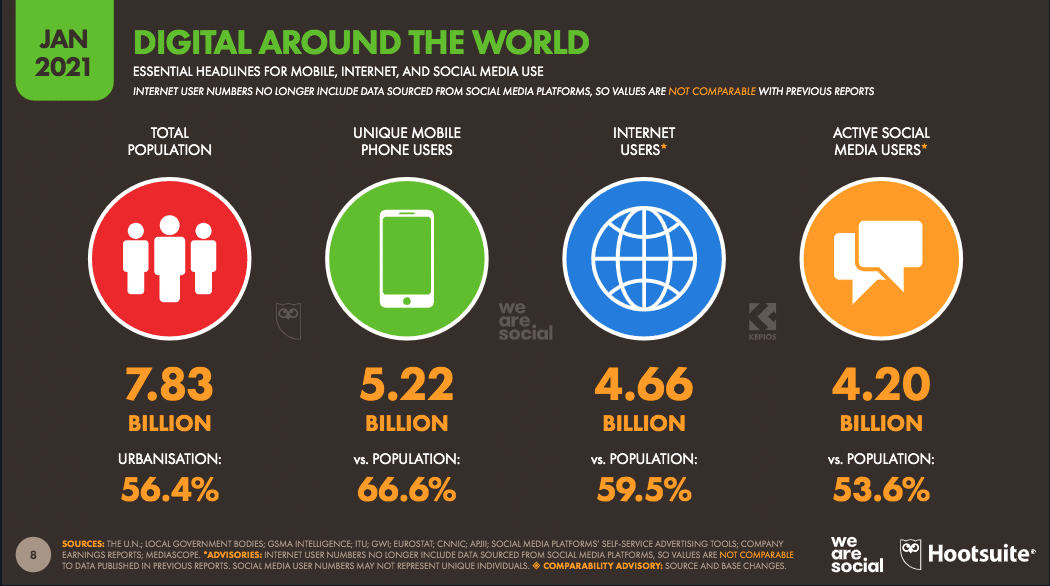
So, you’ve heard about this thing called social media marketing, right? Well, let me tell you, it’s a game-changer. In today’s digital landscape, having a solid social media marketing strategy can be the key to reaching and engaging with your target audience. Whether you’re a small business owner or a big corporation, social media marketing has the power to boost your brand awareness, drive website traffic, and ultimately, increase your sales. Trust me, you don’t want to miss out on this opportunity.
But wait, there’s more! In our article, we’ll dive deeper into the world of social media marketing and explore its various benefits and strategies. We’ll discuss how social media platforms such as Facebook, Instagram, and Twitter can be utilized to effectively promote your business and connect with your audience. We’ll also share some valuable tips and tricks to maximize the impact of your social media presence. So, if you’re curious to learn more about the power of social media marketing, keep reading and get ready to take your business to the next level.
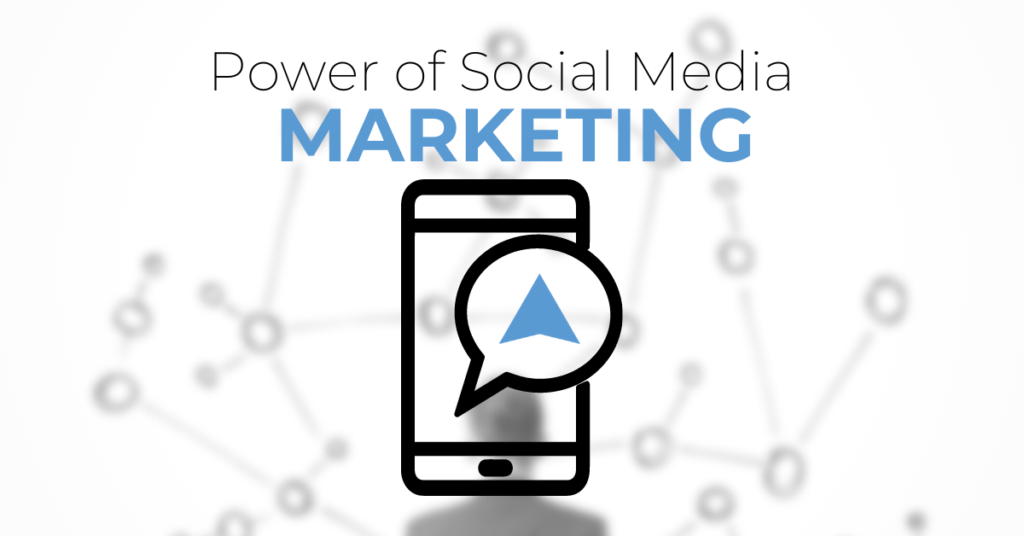
This image is property of leverinteractive.com.
What is Social Media Marketing?
Social media marketing refers to the process of promoting a brand, product, or service through various social media platforms. It involves creating and sharing content on platforms like Facebook, Instagram, Twitter, and LinkedIn to engage with a target audience and drive valuable actions and conversions.
Definition of Social Media Marketing
Social media marketing is a form of internet marketing that utilizes social media platforms to achieve marketing and branding goals. The primary objective is to create and share content that users find engaging and valuable, ultimately leading to brand awareness, customer engagement, and business growth.
Importance of Social Media Marketing
Social media marketing has become an integral part of the overall marketing strategy for businesses of all sizes and industries. Here are a few reasons why it is crucial for your business:
Increased brand awareness: Social media provides an opportunity to showcase your brand to a wide audience. By creating compelling and shareable content, you can expand your reach and increase brand visibility.
Cost-effective marketing strategy: Compared to traditional marketing channels, social media marketing offers a much more cost-effective way to reach and engage with your target audience. It allows you to promote your business without breaking the bank.
Targeted advertising: Social media platforms provide advanced targeting options that allow you to reach specific demographics, interests, and behaviors. This enables you to tailor your messaging and content to a highly relevant audience, increasing the chances of conversion.
Enhanced customer engagement: Social media platforms facilitate direct interaction with your audience, allowing you to respond to comments, messages, and reviews in real-time. By engaging with your customers, you can build stronger relationships and improve customer satisfaction.
Improved customer loyalty: By consistently providing value to your audience through social media, you can establish trust and loyalty with your customers. When people feel connected to your brand and see it as a valuable resource, they are more likely to become repeat customers and brand advocates.
Difference between Social Media Marketing and Traditional Marketing
While both social media marketing and traditional marketing aim to promote a brand and generate sales, there are several key differences between the two:
Communication style: Traditional marketing relies on one-way communication channels such as print ads, TV commercials, and billboards. Social media marketing, on the other hand, allows for two-way communication, providing an opportunity for brands to engage in meaningful conversations with their audience.
Targeting capabilities: Traditional marketing often relies on broad targeting methods, reaching a wide audience without much focus on specific demographics. Social media marketing, however, offers advanced targeting options, allowing you to reach a highly specific and relevant audience.
Cost-effectiveness: Traditional marketing methods can be costly, especially for small businesses with limited budgets. Social media marketing, on the other hand, offers a cost-effective alternative, allowing businesses of all sizes to reach a large audience at a fraction of the cost.
Measurability and analytics: Tracking the success of traditional marketing campaigns can be challenging. With social media marketing, you have access to detailed analytics and insights that enable you to measure the effectiveness of your campaigns and make data-driven decisions.
Benefits of Social Media Marketing
Now that we understand what social media marketing is and why it is important, let’s explore some of the key benefits it offers:
1. Increased Brand Awareness
One of the primary benefits of social media marketing is increased brand awareness. By creating and sharing compelling content on social media platforms, you can expand your reach and make your brand more visible to a wide audience. When people come across your content and find it valuable, they are more likely to share it with their network, further increasing your brand’s exposure.
2. Cost-Effective Marketing Strategy
Compared to traditional marketing methods, social media marketing is a cost-effective way to promote your business. Setting up social media accounts and creating content is generally free, and the costs associated with paid advertising on social media platforms are often more affordable than traditional advertising channels. This makes social media marketing a viable option for businesses of all sizes, including those with limited marketing budgets.
3. Targeted Advertising
One of the major advantages of social media marketing is the ability to target specific demographics, interests, and behaviors. Social media platforms, such as Facebook and Instagram, provide advanced targeting options that allow you to reach a highly relevant audience. This means you can tailor your messaging and content to resonate with the right people, increasing the chances of conversion and maximizing your return on investment.
4. Enhanced Customer Engagement
Social media platforms offer a unique opportunity to engage directly with your audience. People can like, comment, and share your posts, providing valuable feedback and initiating conversations. By actively engaging with your audience through comments, messages, and reviews, you can build stronger relationships, improve customer satisfaction, and gain valuable insights into your customers’ needs and preferences.
5. Improved Customer Loyalty
Social media marketing can help you build trust and loyalty with your customers. By consistently providing value through informative and engaging content, you can position your brand as a trusted resource. When people feel connected to your brand and perceive it as valuable, they are more likely to become repeat customers and brand advocates. This, in turn, enhances customer loyalty and boosts your business growth.
Key Social Media Platforms for Marketing
Now that we understand the benefits of social media marketing, let’s explore some of the key social media platforms that are popular for marketing purposes:
1. Facebook Marketing
With over 2.7 billion monthly active users, Facebook is the largest social media platform and a powerful marketing tool. It offers various features for businesses, including business pages, groups, and paid advertising options. Facebook’s targeting capabilities and robust analytics make it a valuable platform for reaching and engaging with a wide audience.
2. Instagram Marketing
Instagram is a visual platform that focuses on photo and video content. It has over 1 billion active users and is particularly popular among younger demographics. Instagram offers various features for businesses, including business profiles, shopping tags, and paid advertising options. It is a great platform for showcasing products, building brand aesthetics, and reaching a highly engaged audience.
3. Twitter Marketing
Twitter is a real-time social media platform characterized by short messages called tweets. It has over 330 million monthly active users and is known for its fast-paced and conversational nature. Twitter offers various features for businesses, including business profiles, hashtags, and paid advertising options. It is a great platform for engaging with your audience, providing customer support, and participating in industry conversations.
4. LinkedIn Marketing
LinkedIn is a professional networking platform with over 740 million members. It is primarily used for professional purposes, such as networking, job searching, and industry discussions. LinkedIn offers various features for businesses, including company pages, showcase pages, and paid advertising options. It is a valuable platform for B2B marketing, establishing industry thought leadership, and connecting with professionals in your field.
These are just a few examples of the key social media platforms for marketing. It is important to research and understand your target audience to determine which platforms are most relevant for your business.
Best Practices for Social Media Marketing
While social media marketing offers numerous opportunities, it is essential to approach it strategically. Here are some best practices to make the most of your social media marketing efforts:
1. Content Strategy
Develop a comprehensive content strategy that aligns with your business goals and target audience. Plan your content in advance, ensuring it is valuable, engaging, and tailored to the platform you are using. Consistency is key, so establish a content calendar and stick to it.
2. Optimizing Profiles
Optimize your social media profiles to make a strong impression on your audience. Use high-quality visuals, well-crafted descriptions, and relevant keywords. Include links to your website and other social media accounts to drive traffic and cross-promote your content.
3. Building a Community
Actively engage with your audience by responding to comments, messages, and reviews. Encourage conversations, ask for feedback, and show genuine interest in your customers. Building a community around your brand fosters trust, loyalty, and long-term relationships.
4. Monitoring and Analytics
Regularly monitor your social media channels and analyze the performance of your content and campaigns. Use social media analytics tools to track engagement, reach, conversions, and other key metrics. This data will help you make informed decisions and optimize your social media marketing strategy.
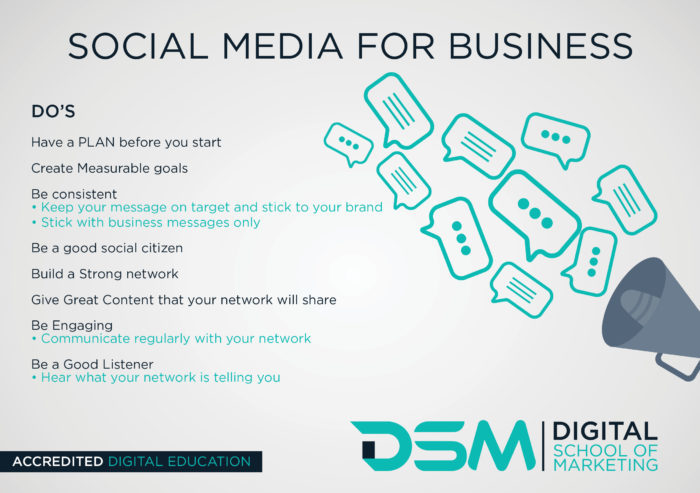
This image is property of digitalschoolofmarketing.co.za.
Social Media Advertising
In addition to organic social media marketing efforts, social media advertising offers a way to amplify your reach and target specific audiences. Here are some key aspects of social media advertising:
Types of Social Media Ads
Social media platforms offer various types of ads, including image ads, video ads, carousel ads, and sponsored content. Each ad format has its own strengths and can be customized to suit your marketing goals and target audience.
Targeting Options
Social media platforms provide advanced targeting options that allow you to reach specific demographics, interests, and behaviors. You can narrow down your audience based on factors such as age, location, gender, interests, and past purchasing behavior. This precision targeting ensures that your ads are seen by the right people.
Setting Ad Budgets and Goals
You can set your own ad budgets and define specific goals for your social media advertising campaigns. Whether you want to increase brand awareness, drive website traffic, or generate leads, you can optimize your budget allocation to maximize your desired outcome.
Measuring Ad Performance
Social media advertising platforms provide comprehensive analytics to help you measure the performance of your ads. You can track metrics such as impressions, clicks, conversions, and return on ad spend. This data allows you to refine and optimize your campaigns for better results.
Influencer Marketing on Social Media
Influencer marketing has emerged as a powerful strategy within social media marketing. It involves partnering with influential individuals on social media who have a large following and authentic influence over their audience. Here are some key aspects of influencer marketing:
Identifying and Engaging with Influencers
Identify influencers in your industry who align with your brand values and target audience. Engage with them by following, liking, and commenting on their posts. Building a relationship with influencers before reaching out for a partnership increases the chances of a successful collaboration.
Negotiating Partnerships
When partnering with influencers, clearly define expectations, deliverables, and compensation. Ensure the partnership is mutually beneficial and transparent. Collaborate with influencers to create authentic and engaging content that resonates with their audience and promotes your brand.
Measuring Influencer Marketing ROI
Track the impact of your influencer marketing campaigns by setting specific goals and analyzing metrics such as engagement, reach, website traffic, and conversions. Using unique URLs, promo codes, or affiliate marketing links can help you attribute sales or leads directly to the influencer’s efforts.
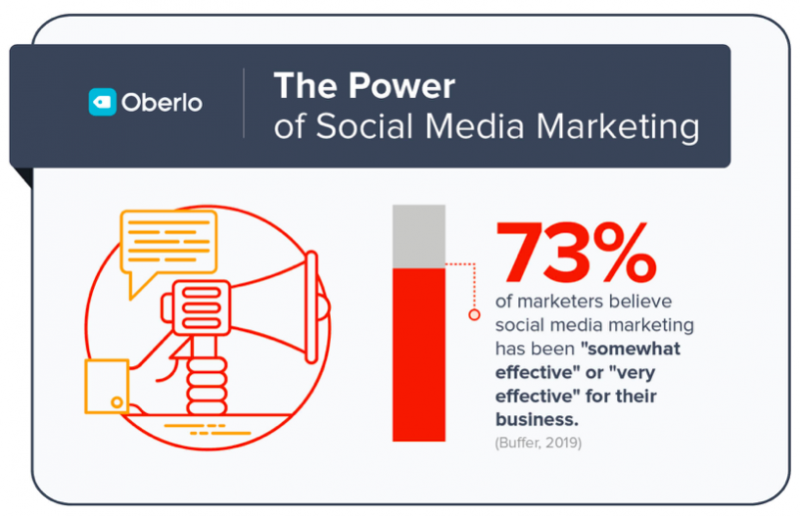
This image is property of www.europeanbusinessreview.com.
Social Media Marketing Trends
To stay ahead in the ever-evolving world of social media marketing, it is important to pay attention to emerging trends. Here are a few trends that are shaping the social media marketing landscape:
Video Content
Video content is dominating social media platforms. Whether it’s short-form videos like TikTok and Reels or long-form content on YouTube and IGTV, video content captures attention and drives engagement. Incorporate video content into your social media strategy to stand out and connect with your audience.
Live Streaming
Live streaming is a powerful engagement tool. Platforms like Facebook Live, Instagram Live, and YouTube Live allow you to interact with your audience in real-time, answer questions, and provide exclusive content. Consider using live streaming to host Q&A sessions, product launches, behind-the-scenes footage, or educational webinars.
User-Generated Content
User-generated content refers to content created by your audience, such as reviews, testimonials, and user-submitted photos or videos. Encourage your audience to create and share content related to your brand. User-generated content not only boosts engagement but also builds trust and authenticity.
Social Commerce
As social media platforms evolve, they are increasingly incorporating e-commerce features. Platforms like Instagram, Facebook, and Pinterest allow businesses to add shoppable tags or buttons to their posts, making it easier for users to purchase products directly from social media. Leverage these features to streamline the purchase process and boost conversions.
Challenges of Social Media Marketing
While social media marketing offers numerous benefits, it also presents some challenges that businesses need to address:
Managing Negative Feedback
Social media platforms provide an open forum for people to express their opinions. While this can be beneficial for receiving positive feedback and engaging in constructive conversations, it also means that negative feedback can be amplified. It is important to have a strategy in place for managing negative feedback, addressing customer concerns, and resolving issues promptly and professionally.
Handling Crisis Situations
In the event of a social media crisis, such as a PR disaster or negative publicity, it is crucial to handle the situation swiftly and effectively. This may involve issuing a public response, addressing concerns, or providing clarification. Having a crisis management plan in place can help mitigate the impact of crisis situations on your brand reputation.
Staying Ahead of Algorithm Changes
Social media platforms frequently update their algorithms, impacting the organic reach and visibility of your content. It is important to stay informed about these changes and adapt your social media marketing strategy accordingly. Experiment with different types of content, engagement strategies, and paid advertising options to maintain a strong presence despite algorithm changes.
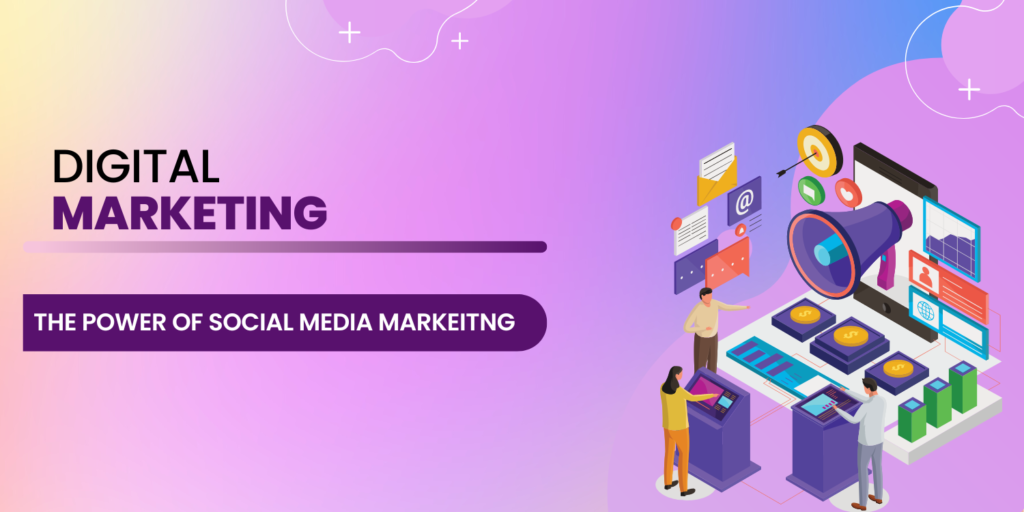
This image is property of uploads-ssl.webflow.com.
Case Studies
To understand the power of social media marketing, let’s explore a few successful social media marketing campaigns:
1. Old Spice – “The Man Your Man Could Smell Like”
Old Spice’s viral campaign featuring actor Isaiah Mustafa took social media by storm. The campaign involved a series of humorous and engaging videos that showcased the brand’s new line of men’s grooming products. The campaign generated millions of views, increased brand awareness, and resulted in a significant boost in sales.
2. Airbnb – “Live There”
Airbnb’s “Live There” campaign focused on encouraging travelers to experience destinations like locals rather than tourists. The campaign featured user-generated content and immersive video stories shared on social media platforms. The campaign resonated with travelers who seek authentic and unique experiences, resulting in increased bookings and brand loyalty.
3. Wendy’s – “Twitter Roasts”
Wendy’s leveraged Twitter’s conversational nature to engage with its audience through witty and humorous responses. The fast-food chain’s social media team would respond to customer inquiries, jokes, and even playful jabs at competitors. This approach garnered attention, increased brand engagement, and helped Wendy’s establish itself as a brand with a distinct voice and personality.
These case studies highlight the power of social media marketing when executed creatively and strategically. They demonstrate the ability to reach and engage with a large audience, drive brand awareness, and achieve business objectives.
Conclusion
Social media marketing is a powerful tool that can elevate your brand, engage your audience, and drive business growth. By leveraging the right social media platforms, creating valuable content, and engaging with your target audience, you can establish a strong online presence, increase brand loyalty, and achieve your marketing goals.
Remember to approach social media marketing strategically, always keeping your audience’s needs and preferences in mind. Stay informed about the latest trends and best practices, and don’t shy away from experimenting with different strategies, ad formats, and content types.
When done right, social media marketing has the power to transform your business and establish a strong and lasting connection with your audience. Start harnessing the power of social media marketing today and unlock the limitless possibilities it offers for your brand’s success.
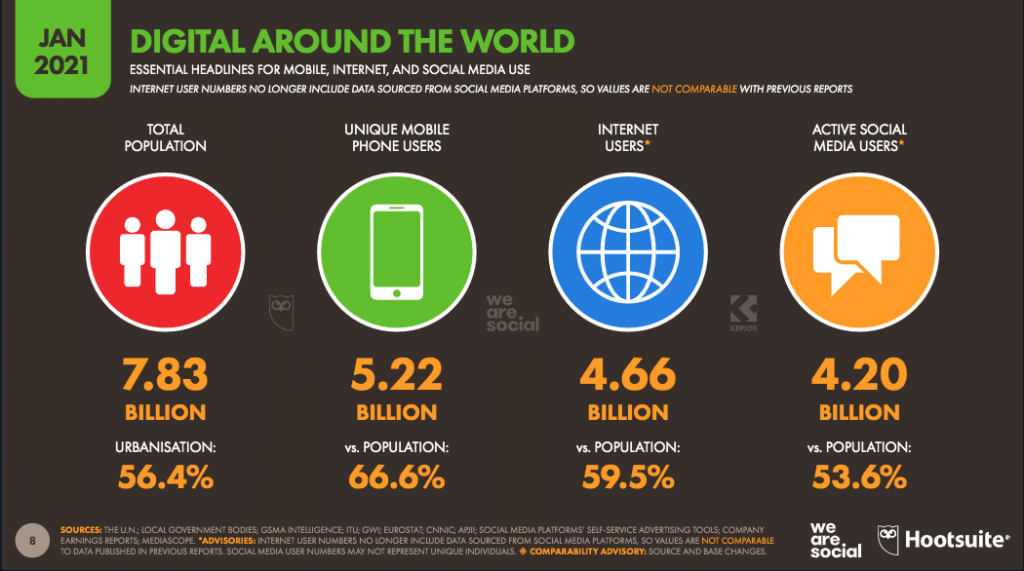
This image is property of blog.hootsuite.com.

